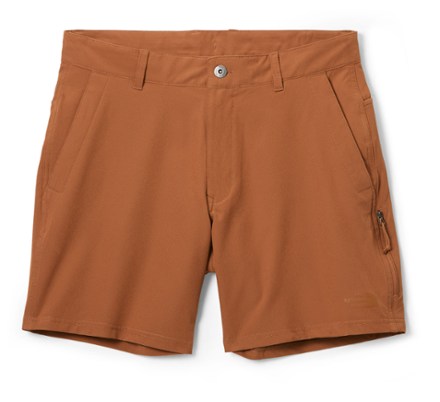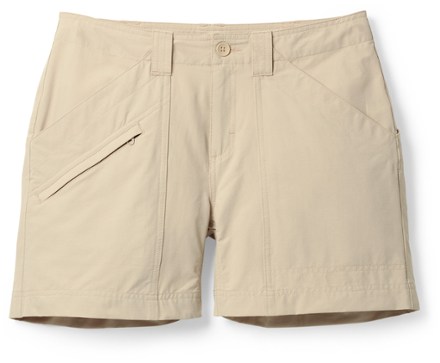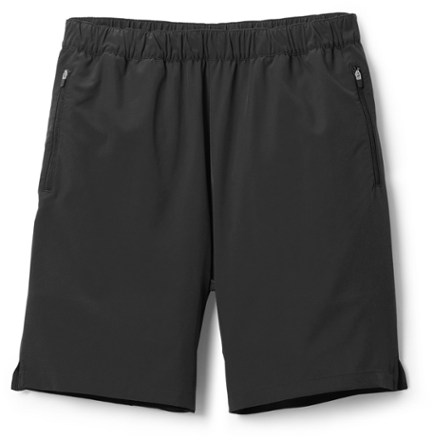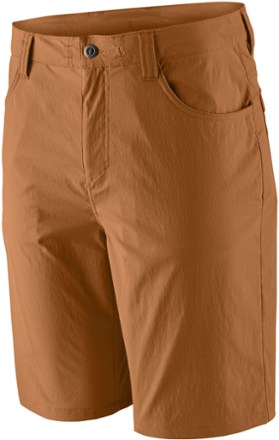Introducing a small child to the wonders of the outdoors is something many new parents look forward to. But, the prospect of camping with a baby can be a bit daunting, even for experienced campers. Here are some tips for how to camp with your baby and still have a good time:
- Choose the right location: For your first outing, pick a place that's not too far from home and offers some basic amenities, like a bathroom. And, if you can, find a shady campsite that's not too close to others.
- Bring a large tent: Bringing a large tent gives you space to spread out and even put a portable crib/play yard if you have one. Most of all, try to be flexible and understand that your nights will probably be a little different than at home.
- Keep baby's meals simple: Breastfeeding is possibly the simplest solution, but if your baby uses a bottle or eats solids you can still go camping. Make sure you have access to clean water for mixing formula and try convenient squeeze packs of pureed food or maybe some of what you're having for dinner if your baby is already eating solids. (But camping isn't the place to introduce new foods.)
- Dress baby in layers: Dress yourself and your baby in layers so you're ready to adapt to changing weather. When it comes time to sleep, add a cozy sleep sack or a fleece bunting for warmth.
- Protect yourself and your baby from bugs and sun: Bug repellent and sunscreen are generally not recommended for babies younger than 6 months old, so look for other methods of protection, like wearing long sleeves and pants, using an umbrella to block the sun and putting on a bug net.
Where to Go Camping with a Baby
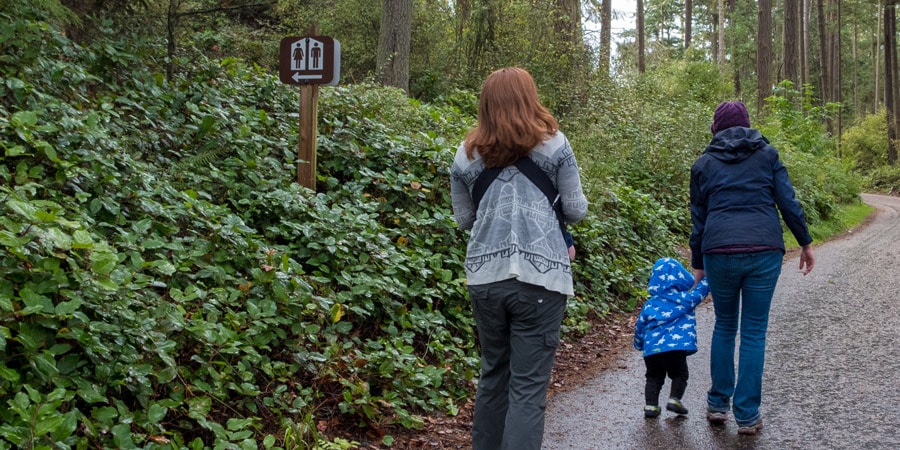
Many of the places you'd consider camping as an adult are suitable for bringing a baby along. That means state parks, national parks and private campgrounds are all reasonable options. As you narrow down your choices, here are some tips:
- Limit driving time: If the thought of camping with a baby seems daunting, then don't add a long car trip to the mix. For your first family outing, eliminate the stress of travel and choose a campsite that's close to home. You won't have to get a super early start to make it to your destination, and if things don't go as planned while camping you can call it quits without having invested hours of driving time. If you want to eliminate driving altogether, set up the tent in your backyard to give family camping a test run only feet from you house.
- Choose campsites with amenities: A campsite with a bathroom and playground nearby is probably not your vision of a true wilderness excursion, but those things can be very convenient with a baby in tow, especially during your first outing or two. When you're more comfortable with camping as a family, you can head farther afield.
- Try to get distance from other campsites: If you're making reservations ahead of time, try to find a site that has a little distance between it and the neighboring sites. The extra space can make the whole experience feel a bit more remote and help reduce your worry about noise issues.
- Seek shade: Keeping little ones out of direct sun is an important step in protecting them from UV rays, so if you can, choose a shady spot. (Read more about sun protection below.)
Tips for Sleeping in a Tent with a Baby
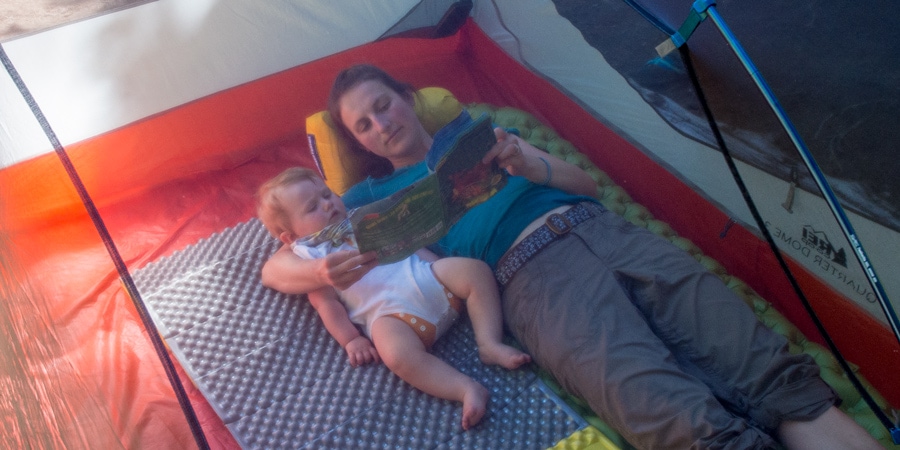
Let's be real: Getting a solid night of sleep with a young baby at home can be challenging enough. Add all the newness of a camping trip and there's a good chance you and your little one will be up a few more times throughout the night than is usual. Try to take this in stride (and bring along a little extra coffee for the morning).
Here are some tips for handling sleep while camping:
- Be flexible: Every family has its own way of working on sleep with a baby, and it's up to you to decide how you'll handle that while camping, but know this: Camping is going to disrupt your normal nighttime routine. Try to be adaptable and understand that you might have to take a break from any sleep training techniques you've been employing at home so that you and your baby can get through the night. For example, you might have to allow your little one to stay up later than normal until it gets dark or nurse more frequently in the middle of the night for comfort.
- Bring a big tent: If you have a big family camping tent, bring it. You'll appreciate having extra space to spread out and get comfortable. And a big tent gives you room to use a portable crib/play yard (see next tip).
- Use a portable crib/play yard: This is an especially good idea if your baby is used to sleeping in a portable crib/play yard (and if you have a tent that's large enough to fit it). The familiarity of the crib may help your little one settle down and stick to the nighttime routine. And even if you don't use it for sleep, the crib can come in handy when you need to contain your mobile baby while you cook dinner.
- Bring a few favorites from home: Almost everything in the outdoors is a toy to your little tot, so don't feel like you have to bring along every item from home. But, packing a few special things, like a stuffed animal and some books, can help comfort your baby in the new environment.
Meal Planning for a Baby
Planning a camp menu can seem like a lot of work, but if you focus on keeping things simple for you and your baby it's not so bad. For adults and older kids, one-pot meals, like pasta, oatmeal and chili, make meal prep, cooking and cleanup easy. If you want to make more elaborate meals, check out our collection of recipes.
To plan food for your baby, consider first what they eat at home; most likely, you'll be able to stick pretty close to that. If they're breastfeeding, then the menu is super simple. But if your baby drinks from a bottle or eats solids, you can still journey out into nature with just a couple extra considerations:
- Keep things clean: If you're bottle feeding, make sure you have a way to keep everything clean. You can boil water at your campsite to sanitize your bottles. If you're mixing up formula, make sure you have access to clean, potable water.
- Bring convenient foods: If your child is eating solid foods, there are convenient options like squeeze packets with pureed fruits and vegetables in them that don't require refrigeration unless open. An older kid can squeeze one of these into their own mouth, but with a real little one, you can squeeze small amounts onto a spoon and feed it to them. If your baby is old enough to enjoy finger foods, try soft fruits, scrambled eggs, avocado and beans. It's possible your child can even eat some of what you're having. Of course, follow your pediatrician's guidance on what's appropriate for your child to eat.
For tips on simplifying campsite cooking, check out our post, 11 Camp Cooking Hacks From REI Experts.
How to Dress Your Baby for Camping
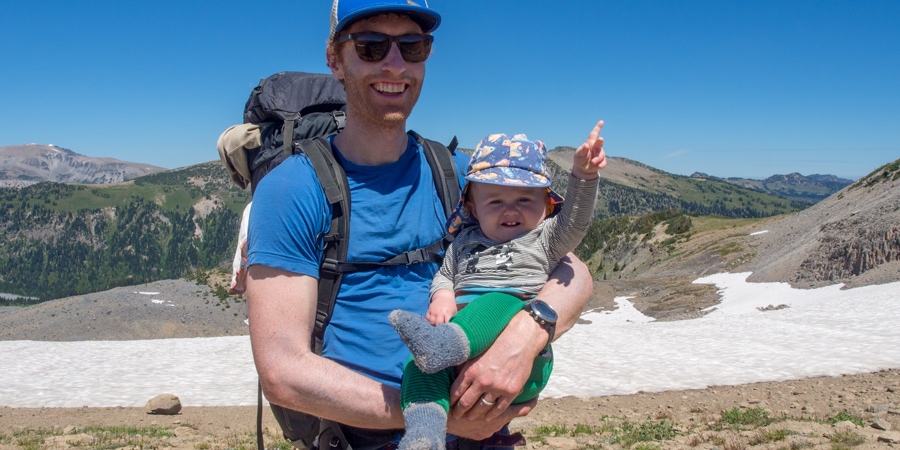
A comfortable baby is a happy baby. To keep your little one having a good time on your camping trip, follow these clothing tips:
- Dress baby in layers: Just like when you dress yourself for a day outside, think about what layers you can bring for your baby so you're ready to adapt to changing weather. You'll want a base layer that goes next to skin, a middle layer that provides warmth and an outer layer that offers protection from wind and rain.
- Avoid cotton: On a casual car-camping trip with a good weather forecast, you can use many of the everyday clothing items you have at home. But if you anticipate cold and/or wet weather, it's wise to bring along clothes made from synthetics or wool that do a better job of insulating and drying more quickly than cotton. For cold weather, try things like wool socks, fleece pants, fleece jackets and/or insulated jackets. If you anticipate rain, you'll need a shell jacket to shed the raindrops. On sunny days, consider long-sleeve shirts and pants that breathe well so your child will be protected from the sun but won't be too hot. Learn more about dressing in layers.
- Don't overdress: For sleeping, you can add a sleep sack or fleece bunting for extra warmth. But be wary of overdressing your baby. It's easy to add a bunch of layers for fear that he or she will get cold at night. Check the forecast for the low temperatures and think honestly about how those compare to the temps in your house and adjust your baby's outfit accordingly. With experience, you'll get to know just how many layers your baby needs to sleep comfortably at night.
- Diaper per usual: Diapering your baby while camping doesn't have to be drastically different from what you do at home, especially if you have a bathroom nearby to dump waste and dispose of diapers. If you use cloth diapers at home, you don't have to abandon that while outdoors. Bring along an airtight bag for stowing dirty cloth diapers until you get home where you can wash them. A portable changing mat gives you a place to put your baby down for diaper changes, but you could also use a sleeping pad or blanket. (Learn more in How to Diaper on the Trail like a Pro).
How to Protect Your Baby from Bugs and Sun While Camping
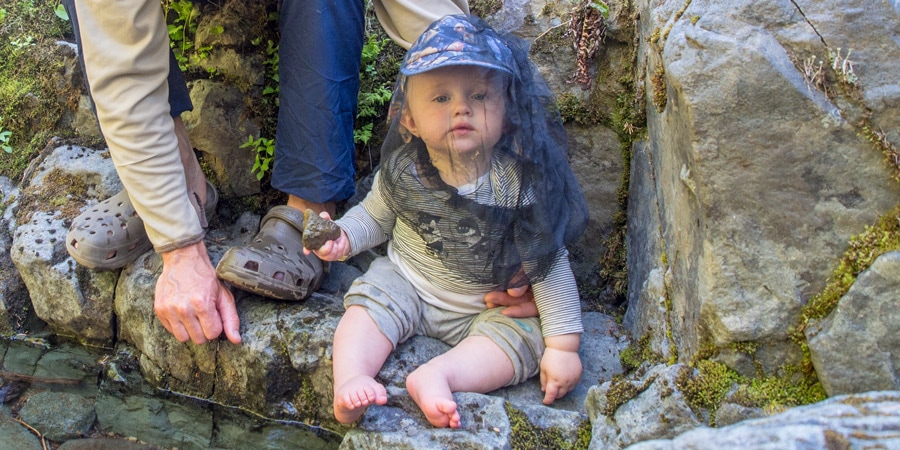
The general recommendation is to not apply bug repellent or sunscreen on babies younger than 6 months old. So if you're taking a real little one out camping you'll want to consider other methods of protection, like clothing, for example. Here are some tips (always discuss any specific concerns with your pediatrician):
- Limit exposed skin: The Centers for Disease Control and Prevention says not to use insect repellent on babies younger than 2 months old while the Environmental Working Group says 6 months old. If you want to avoid using repellents, try to limit the amount of skin that's exposed. Pants tucked into socks, a long-sleeve shirt and a hat are fairly effective. You can also try other ways of deterring insects, like wearing head nets, setting up a screened-in shelter or lighting citronella candles in your campsite.
- Seek shade: The Federal Drug Administration (FDA) recommends checking with your doctor before applying sunscreen on babies younger than 6 months old. Your first line of defense against the sun is to keep your baby away from it as much as you can. Look for a shady campsite or places to play that are out of the sun. You can also dress them in sun-protection clothing and/or use an umbrella to block the sun. If you do need to put sunscreen on, check with your pediatrician about the appropriate age to do so and then test the sunscreen on a small patch of skin to make sure it doesn't cause a reaction.

